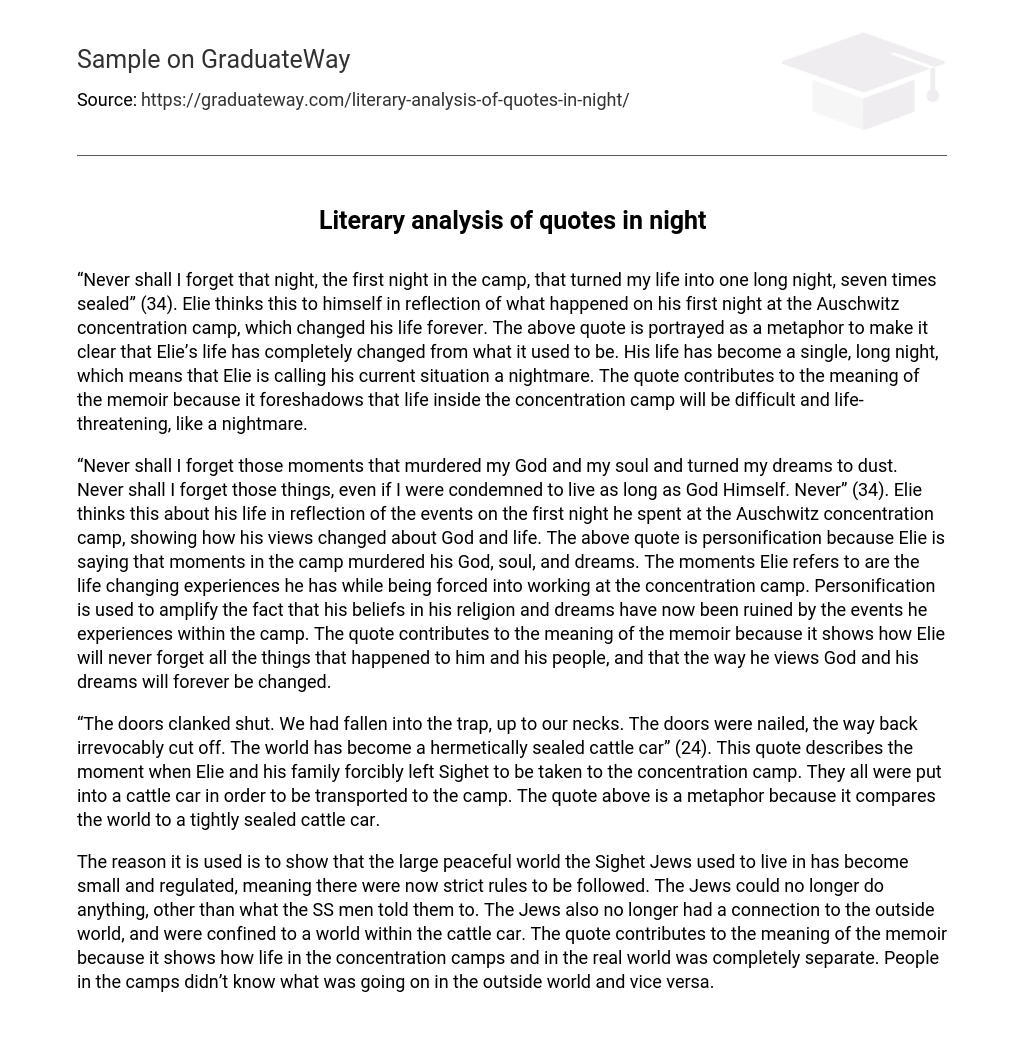“Never shall I forget that night, the first night in the camp, that turned my life into one long night, seven times sealed” (34). Elie thinks this to himself in reflection of what happened on his first night at the Auschwitz concentration camp, which changed his life forever. The above quote is portrayed as a metaphor to make it clear that Elie’s life has completely changed from what it used to be. His life has become a single, long night, which means that Elie is calling his current situation a nightmare. The quote contributes to the meaning of the memoir because it foreshadows that life inside the concentration camp will be difficult and life-threatening, like a nightmare.
“Never shall I forget those moments that murdered my God and my soul and turned my dreams to dust. Never shall I forget those things, even if I were condemned to live as long as God Himself. Never” (34). Elie thinks this about his life in reflection of the events on the first night he spent at the Auschwitz concentration camp, showing how his views changed about God and life. The above quote is personification because Elie is saying that moments in the camp murdered his God, soul, and dreams. The moments Elie refers to are the life changing experiences he has while being forced into working at the concentration camp. Personification is used to amplify the fact that his beliefs in his religion and dreams have now been ruined by the events he experiences within the camp. The quote contributes to the meaning of the memoir because it shows how Elie will never forget all the things that happened to him and his people, and that the way he views God and his dreams will forever be changed.
“The doors clanked shut. We had fallen into the trap, up to our necks. The doors were nailed, the way back irrevocably cut off. The world has become a hermetically sealed cattle car” (24). This quote describes the moment when Elie and his family forcibly left Sighet to be taken to the concentration camp. They all were put into a cattle car in order to be transported to the camp. The quote above is a metaphor because it compares the world to a tightly sealed cattle car.
The reason it is used is to show that the large peaceful world the Sighet Jews used to live in has become small and regulated, meaning there were now strict rules to be followed. The Jews could no longer do anything, other than what the SS men told them to. The Jews also no longer had a connection to the outside world, and were confined to a world within the cattle car. The quote contributes to the meaning of the memoir because it shows how life in the concentration camps and in the real world was completely separate. People in the camps didn’t know what was going on in the outside world and vice versa.





